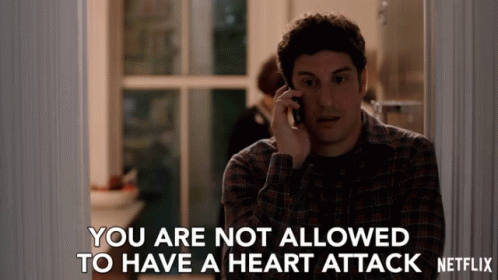Love Your Heart, Live Your Life
Tips for Heart Health
For the month of love, it’s only right that we spend some time discussing heart health.
Heart health is a piece of your physical wellbeing which is a piece of your broader wellbeing. As a public health professional, I feel the need to acknowledge that we are in a particularly dangerous and scary time of history in the United States. Some of our fundamental rights related to our wellbeing are under attack. We are consistently being bombarded with urgent & apocalyptic news that directly impacts us and our communities. If you are like me, you might be looking for a way to balance staying informed and staying sane. Those feelings are totally reasonable. As I mentioned in my November newsletter following the election, I feel strongly that two things are true:
As our government actively works to degrade, defund, and demolish our public health infrastructure, it is more important than ever to prioritize our wellbeing. I fully expect this administration to make healthcare less accessible, to deregulate our food systems, to pollute our air, and to make it harder for our safety nets to function. This means that our protective factors (the things in our life that promote health or buffer us from poor health outcomes) shrink. However, how you take care of your body is still very much in your control. You can choose to work out regularly, get fresh air, eat whole foods, drink water, sleep enough & stay connected to people you care about. All of those actions might seem small but in a world where our systems cannot protect us, they can make a HUGE difference. These small habits can be the difference between developing chronic disease or not… (see more about this below)
We must look out for each other as much as we can. If we cannot rely on institutions, we must lean into community. Your local recreation centers, your local parks, your local food banks, your local mutual aid organizations are all resources that you can turn to and invest in to build alternative support networks. Whether you’re building new communities or tapping into existing ones, I encourage you to lead with love, to seek comfort in your neighbors, and to do what you can to stay afloat.
Now let’s talk about heart health…
Your heart is a vital organ that works 24/7 to keep you moving, thinking & thriving. Cardiovascular health refers to the well-being of your heart and blood vessels, ensuring that your body gets the oxygen and nutrients it needs. Keeping your heart in top shape isn’t just about avoiding disease—it’s about living a longer, healthier & happier life.
Facts of the Heart
Cardiovascular disease can take many shapes - it might show up as chronic high blood pressure or as an acute event like a heart attack. Heart disease is currently the leading cause of death in the United States across most gender and racial demographics. Here are some statistics:
In the U.S., heart disease accounts for 1 in every 5 deaths.
Nearly 18 million people die from cardiovascular diseases each year globally.
It affects people of all backgrounds, but some groups—such as African Americans and Hispanic communities—are at higher risk due to genetic and socioeconomic factors.
About 80% of heart disease cases are preventable with lifestyle changes
(Source)
Chronic vs. Acute Heart Disease: What’s the Difference?
Chronic Heart Conditions: These develop over time, such as high blood pressure (hypertension), coronary artery disease, and heart failure. These conditions may not cause symptoms early on but can lead to severe complications if untreated.
Acute Heart Conditions: These happen suddenly, like heart attacks and strokes, often due to blockages in the arteries. These emergencies require immediate medical attention.
The good news is that most heart diseases are not only manageable but preventable. The American Heart Association (AHA) offers a framework for preventing heart disease called Life’s Essential 8 - eight simple strategies you can implement in your daily life to improve your cardiovascular health and reduce your risk of cardiovascular disease.

